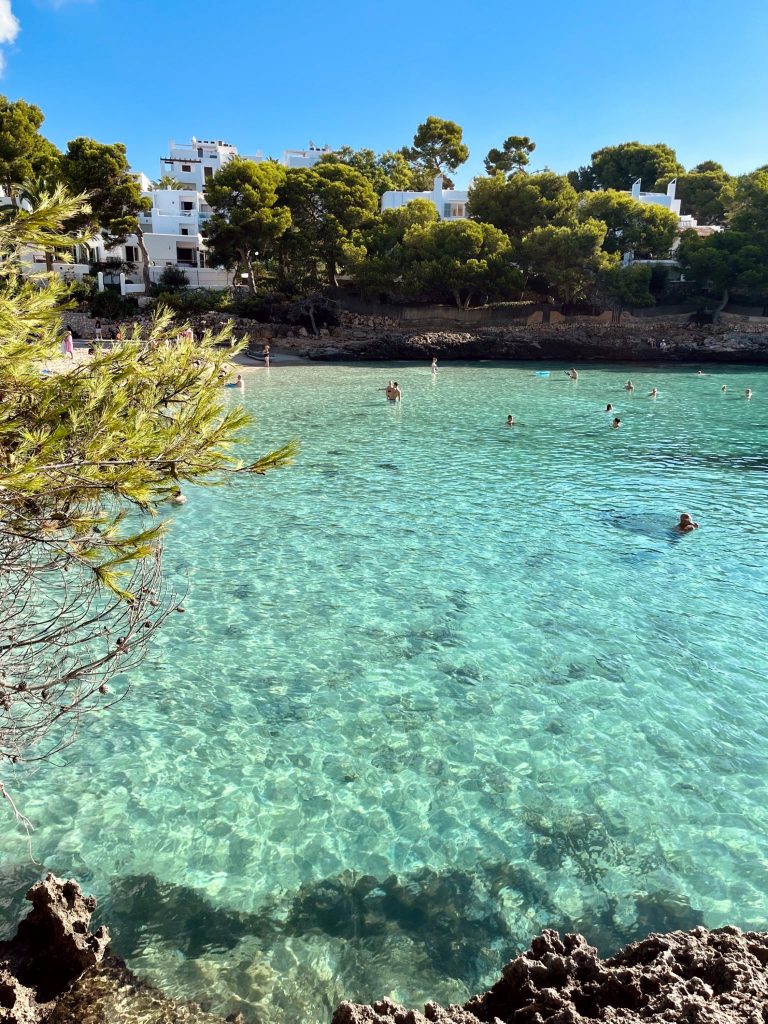Managing A Vacation Home LLC
Did you recently invest in a vacation home and are now wondering how to effectively manage it? Look no further! In this article, we will explore the benefits of setting up a vacation home LLC and how it can make your life easier as a property owner. Discover the advantages of liability protection, tax benefits, and simplified management that come with forming a vacation home LLC. Don’t miss out on the opportunity to maximize your investment and ensure a stress-free experience in managing your vacation home!
Choosing the Right Legal Structure
When it comes to managing a vacation home, choosing the right legal structure is crucial. There are several options to consider, each with its own advantages and considerations. Let’s take a closer look at some of the most common legal structures for vacation homes.
Limited Liability Company (LLC)
Forming an LLC for your vacation home offers a variety of benefits. One of the most significant advantages is personal asset protection. With an LLC, your personal assets are separate from the assets of the business. This means that if any legal issues arise, your personal finances and property are shielded from potential liabilities.
Sole Proprietorship
A sole proprietorship is the simplest and most common form of business ownership. In this structure, you are the sole owner and have complete control over your vacation home. However, it’s important to note that there is no legal separation between you and your business. This means that you are personally liable for any debts or legal claims against the property.
Partnership
If you’re co-owning a vacation home with one or more individuals, forming a partnership might be the right choice. In a partnership, the responsibilities, liabilities, and profits are shared among the partners according to the terms of your partnership agreement. It’s essential to have a solid agreement in place to ensure smooth operations and avoid any potential conflicts.
Corporation
A corporation is a separate legal entity from its owners. It offers limited liability protection, but also entails more complex legal requirements and formalities. While forming a corporation may be more suitable for larger vacation home businesses, it’s important to consult with a legal professional to determine if this structure aligns with your needs and goals.
Benefits of Forming a Vacation Home LLC
Now that we’ve covered the different legal structures available, let’s delve into the specific benefits of forming a vacation home LLC.
Personal Asset Protection
By forming an LLC for your vacation home, you establish a legal separation between your personal assets and those of the business. This is a crucial aspect of asset protection, as it ensures that your personal belongings, such as your home, vehicles, and savings, are not at risk if the business faces any legal issues.
Limited Liability
As an owner of an LLC, your personal liability is limited to the amount of your investment in the company. This means that your personal assets are safeguarded in case of lawsuits, debts, or other financial obligations incurred by the vacation home business. It provides an additional layer of protection and peace of mind.
Pass-Through Taxation
One of the significant advantages of an LLC is the pass-through taxation. This means that the profits and losses of the business pass through to the owners’ personal tax returns, avoiding double taxation. As a result, you can benefit from potential tax deductions and reduce your overall tax liability.
Flexible Management
Operating an LLC allows for flexible management structures. You have the freedom to choose how you want to manage your vacation home. Whether you prefer a centralized management approach or want to involve all owners in decision-making, an LLC offers the flexibility to tailor the management structure to your specific needs.

Setting Up Your Vacation Home LLC
After considering the benefits of forming an LLC for your vacation home, it’s time to dive into the process of setting up your business.
Choose a Name
The first step in setting up your vacation home LLC is choosing a name for your business. Make sure to select a unique and memorable name that accurately reflects your vacation home and its offerings. It’s also essential to check with the Secretary of State’s office in your jurisdiction to ensure the name is available and complies with any naming regulations.
File Articles of Organization
To formally establish your LLC, you’ll need to file Articles of Organization with the appropriate state agency. These documents outline the basic details of your business, such as its name, registered agent, management structure, and purpose. Filing requirements and fees may vary depending on your jurisdiction, so it’s crucial to research and comply with the specific regulations in your area.
Draft an Operating Agreement
While not always legally required, drafting an operating agreement is highly recommended for any LLC. This document outlines the rights, responsibilities, and operating procedures of the owners of the business. It helps establish clear guidelines for decision-making, profit-sharing, and conflict resolution. Consulting with a legal professional when creating your operating agreement can ensure that all necessary provisions are included and that it aligns with the laws of your jurisdiction.
Obtain an EIN
An Employer Identification Number (EIN) is a unique nine-digit number issued by the Internal Revenue Service (IRS). It’s used to identify your LLC for tax purposes. Obtaining an EIN is typically a straightforward process and can be done online through the IRS website. This number will be necessary for opening a bank account, filing tax returns, and conducting other financial transactions on behalf of your business.
Choosing the Right Location
The location of your vacation home is a critical factor that can greatly impact its success. Several considerations should be kept in mind when selecting the perfect location for your property.
Consider Local Regulations
Before purchasing a vacation home, it’s crucial to familiarize yourself with the local regulations and zoning laws in the area. Some municipalities have strict rules and restrictions on short-term rentals or require specific permits and licenses. Ensuring compliance with these regulations is essential to avoid fines or legal issues down the line.
Evaluate the Rental Market
Analyzing the rental market in your desired location is vital to determine the potential profitability of your vacation home. Look into rental rates, occupancy rates, and demand for vacation rentals in the area. Consider factors such as seasonality, local attractions, and competition to assess the viability of your investment.
Assess Property Management Options
Deciding whether to manage your vacation home yourself or hire a property management company is an important consideration. Managing the property yourself can save costs but requires time, effort, and expertise. On the other hand, a property management company can handle everything from guest bookings and cleaning to maintenance and marketing. Evaluate your priorities and resources to determine which option is best for you.
Analyze Proximity to Amenities
The proximity of your vacation home to amenities and attractions can greatly influence its appeal to potential guests. Consider the accessibility to beaches, ski resorts, shopping, dining, and other popular attractions. Properties located near sought-after amenities are likely to attract more bookings and achieve higher rental rates.
Understanding Tax and Legal Obligations
Managing a vacation home LLC involves various tax and legal obligations that must be adhered to. Understanding these obligations is crucial for compliance and minimizing potential risks.
Local and State Taxes
Check with your local and state tax authorities to determine the specific tax obligations for your vacation home. Some jurisdictions may require you to collect and remit transient occupancy taxes, sales taxes, or other levies on short-term rentals. It’s essential to keep accurate records and stay up to date with any changes in tax regulations to avoid penalties and fines.
Federal Taxes
As a vacation home owner, you’ll also have federal tax obligations. Consult with a tax professional to understand the specific requirements and deductions available for your business. Keep track of rental income, expenses, and any depreciation to accurately report and file your federal tax returns.
Insurance Requirements
Having the appropriate insurance coverage is crucial to protect your vacation home. Speak with an insurance agent who specializes in vacation rental properties to ensure you have the appropriate coverage for both property damage and liability. This can provide protection against unforeseen circumstances and potential lawsuits.
Compliance with Rental Regulations
Many jurisdictions have specific regulations and requirements for vacation rentals. These can include occupancy limits, noise restrictions, safety standards, and more. It’s essential to stay informed about these regulations and ensure compliance to avoid legal issues and maintain a positive reputation in the community.
Structuring Rental Agreements
Creating well-structured rental agreements is essential for managing your vacation home effectively. These agreements outline the terms and conditions for guests staying at your property and provide clarity for both parties involved.
Long-Term vs. Short-Term Rentals
Decide whether you will focus on long-term or short-term rentals for your vacation home. Long-term rentals typically involve longer lease agreements and more stable occupancy. Short-term rentals, on the other hand, offer the opportunity for higher rental rates but require more frequent turnover and ongoing marketing efforts.
Rental Pricing and Policies
Establishing competitive and appropriate rental pricing is crucial to attract guests while still generating a profit. Consider factors such as location, property amenities, seasonal demand, and local competition when setting your rates. In addition to pricing, clearly define your rental policies regarding check-in/out procedures, cancellation policies, cleaning fees, and any other terms important to your business.
Security Deposits and Rental Contracts
Including security deposits and rental contracts in your agreements is a smart practice to protect yourself and your vacation home. Security deposits can help cover any potential damages or excessive cleaning required after a guest’s stay. Rental contracts outline the rights and responsibilities of both the guest and the owner, providing legal protection and ensuring clear expectations.
Online Booking Platforms
Utilizing online booking platforms can streamline the rental process and help reach a broader audience. Websites such as Airbnb, VRBO, and Booking.com allow you to showcase your vacation home, accept bookings, and communicate with guests easily. Invest time in creating an eye-catching listing, responding promptly to inquiries, and maintaining positive guest reviews to maximize your property’s visibility and bookings.

Maintaining and Upgrading the Property
To attract guests and maintain a high level of satisfaction, it’s essential to prioritize the maintenance and continuous improvement of your vacation home.
Regular Inspections and Maintenance
Performing regular property inspections and maintenance checks is crucial to ensure everything is in working order and address any issues promptly. This includes checking electrical systems, plumbing, appliances, and structural elements. Implementing a proactive maintenance schedule can help prevent costly repairs down the line and ensure a positive guest experience.
Safety and Security Measures
Providing a safe and secure environment for your guests should be a top priority. Install functioning smoke detectors, carbon monoxide detectors, and fire extinguishers throughout the property. Ensure that locks and entry systems are secure and functional. Communicate emergency procedures and local emergency contact information to guests to promote both convenience and safety.
Improvement and Renovation Strategies
Periodically assessing your vacation home for potential improvements and renovations can enhance the overall guest experience and attract more bookings. Consider upgrades such as modernizing kitchens and bathrooms, updating furnishings and decor, or adding amenities like a hot tub or grill. Carefully weigh the costs against potential returns when deciding on improvement projects.
Managing Repairs and Landscaping
Promptly addressing repairs and maintaining the landscaping of your vacation home contributes to its overall appeal. Establish relationships with local contractors and service providers who can assist with any necessary repairs or landscaping needs. Regularly inspect and maintain outdoor spaces, such as gardens, lawns, and pools, to create an inviting atmosphere for guests.
Hiring Property Management Services
While managing a vacation home yourself can be rewarding, enlisting the help of a professional property management company can offer numerous benefits.
Benefits of Professional Property Management
Professional property management companies have the expertise and resources to handle the day-to-day operations of your vacation home. They can take care of guest inquiries, bookings, cleaning, maintenance, and marketing, allowing you to focus on other priorities. Their experience and industry knowledge can help maximize your rental income and provide peace of mind.
Services Offered
Property management companies offer a range of services tailored to meet your specific needs. These can include marketing and advertising your vacation home, guest correspondence, 24/7 emergency support, housekeeping, regular maintenance, and financial reporting. Discuss your requirements with different management companies to find the one that aligns with your goals.
Choosing a Reputable Management Company
When selecting a property management company, it’s essential to do your due diligence and choose a reputable and trustworthy partner. Research their track record, read reviews and testimonials, and request references. Look for a company with experience in managing vacation rental properties and one that has a solid marketing strategy to reach potential guests.
Costs and Fee Structures
Property management fees can vary depending on the company and the services provided. Common fee structures include a percentage of rental income, a flat fee, or a combination of both. Take the time to compare fee structures and determine the services that are most valuable to you. Keep in mind that while hiring a property management company comes with a cost, the benefits and time savings can outweigh the expenses.

Marketing and Promoting Your Vacation Home
Effectively marketing and promoting your vacation home is essential to attract guests and maximize your booking potential. Here are some strategies to consider:
Photography and Virtual Tours
Investing in professional photography and creating virtual tours can significantly impact the success of your marketing efforts. High-quality, visually appealing images can capture the attention of potential guests and showcase the unique features of your vacation home. Virtual tours provide an immersive experience, allowing guests to explore the property virtually and get a sense of its layout and amenities.
Listing on Vacation Rental Websites
Listing your vacation home on popular vacation rental websites is crucial for reaching a broad audience. Platforms like Airbnb, VRBO, and Booking.com have a significant user base and provide exposure to travelers searching for accommodations. Craft compelling descriptions, highlight the unique aspects of your property, and utilize the platform’s optimization features to maximize your listing’s visibility.
Effective Pricing Strategies
Implementing effective pricing strategies can help you stay competitive and attract more bookings. Consider factors such as seasonal demand, local events, and market trends when adjusting your rates. Offering discounts for longer stays or midweek bookings can also incentivize guests to choose your vacation home over others.
Promotion through Social Media
Harness the power of social media to promote your vacation home and engage with potential guests. Create an attractive and informative business page on platforms like Facebook and Instagram. Share captivating images, post updates about local events, and interact with followers to build relationships and generate interest in your property.
Frequently Asked Questions
What are the benefits of forming an LLC for my vacation home?
Forming an LLC for your vacation home offers personal asset protection, limited liability, pass-through taxation, and flexible management options. It separates your personal assets from those of the business, provides legal protection, allows for potential tax advantages, and gives you more control over your vacation home.
Do I need to hire a property management company?
Hiring a property management company is not mandatory but can be beneficial. Professional property managers handle guest inquiries, bookings, cleaning, maintenance, and marketing, saving you time and effort. They also have industry expertise that can help maximize your rental income and provide peace of mind.
How can I minimize my tax obligations?
To minimize your tax obligations, consult with a tax professional and stay informed about local, state, and federal tax regulations. Keep accurate records of rental income and expenses, take advantage of available deductions, and consider working with an accountant who specializes in vacation rental properties.
What should I consider when listing my vacation home online?
When listing your vacation home online, consider the importance of high-quality photography and virtual tours. Craft compelling descriptions that highlight the unique features of your property. Pay attention to pricing strategies and utilize social media to promote your listing and engage with potential guests.
How can I ensure the safety of my guests?
To ensure the safety of your guests, implement safety and security measures such as smoke detectors, carbon monoxide detectors, fire extinguishers, and secure entry systems. Keep emergency contact information readily available and provide clear instructions regarding emergency procedures. Regular inspections and maintenance checks can also help identify and address any potential safety issues.





